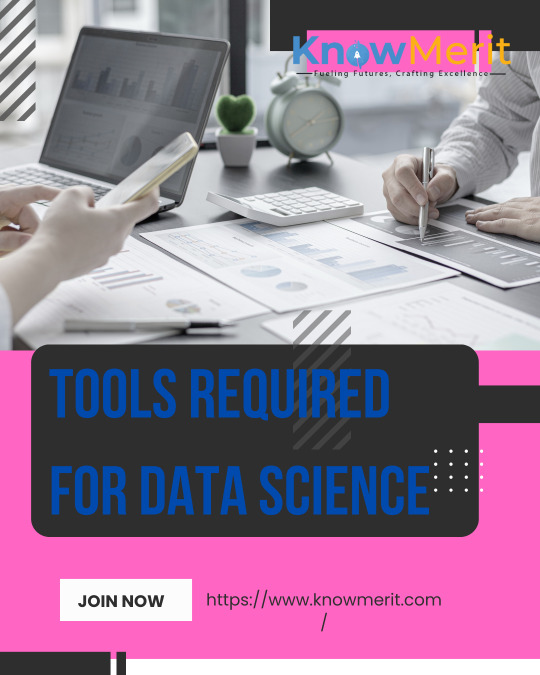Text

Engineering interviews serve as gateways to promising career opportunities, particularly for those adept in Angular development. With Angular's prominent position in the realm of front-end web development, mastering Angular interview questions becomes imperative for securing sought-after engineering roles. In this article, we'll unravel effective strategies to crack engineering interviews while focusing on mastering Angular interview questions.
Take advantage of online platforms specifically designed for Angular practice and learning. Websites like Pluralsight, Udemy, and Coursera offer comprehensive Angular courses and tutorials that cover a wide range of topics, from beginner to advanced levels. Engage with these platforms to reinforce your understanding of Angular concepts and gain practical experience through hands-on exercises and projects.
Connect with professionals in the Angular development community through networking events, meetups, and online forums like Reddit and LinkedIn groups. Seek guidance and mentorship from experienced Angular developers who can provide valuable insights, share best practices, and offer advice on navigating the interview process. Building a strong professional network can open doors to valuable opportunities and resources.
0 notes
Text
Ready to elevate your Node.js interview game?
Are you gearing up for Node.js interviews and aiming to soar high in your career? Mastering the same top Node.js interview questions is not just a pathway but a gateway to unlocking unparalleled success in the dynamic world of web development. In this comprehensive guide, we'll embark on a journey together, delving deep into strategies, insights, and actionable tips to equip you with the confidence and expertise needed to navigate through Node.js interviews with finesse and emerge victorious. So, fasten your seatbelts and get ready to embark on this transformative journey toward your dream Node.js job! #NodeJS #InterviewPrep #TechCareer
💼 Securing that coveted position in Node.js development isn't just a dream – it's a tangible goal within your reach. But to make it a reality, you need to conquer the challenges posed by Node.js interviews. Fear not, for we're here to guide you through the maze of those same top questions that every aspiring Node.js developer encounters. Armed with insights, strategies, and expert advice, you'll emerge not just prepared but empowered to impress recruiters, dazzle employers, and pave the way for an exciting career journey in the realm of Node.js development. Let's dive in and unlock the door to your professional aspirations! #NodeJS #CareerGoals #InterviewPreparation
💡 Ready to illuminate your path to success in Node.js interviews? It's time to shed light on the strategies and techniques that will set you apart from the competition. From mastering the intricacies of event-driven architecture to navigating the complexities of asynchronous programming, we've got you covered. Join us as we embark on a journey of discovery, empowerment, and transformation. Together, we'll unravel the mysteries of those same top Node.js interview questions, turning challenges into opportunities and aspirations into achievements. Get ready to shine bright and carve out your niche in the world of Node.js development! #NodeJS #InterviewTips #TechCareer
0 notes
Text
Driving Economic Growth and Technological Advancement
The significance of programming languages extends beyond individual developers and projects; it plays a pivotal role in driving economic growth and technological advancement on a global scale. Countries and regions that prioritize investment in technology education and infrastructure are better positioned to leverage the potential of programming languages and capitalize on emerging opportunities in the digital economy.
By nurturing a skilled workforce proficient in a wide range of programming languages, governments and organizations can foster innovation ecosystems, attract investment, and stimulate job creation. Moreover, by promoting diversity and inclusion within the tech industry, we can harness the collective talents and perspectives of individuals from diverse backgrounds, driving innovation and ensuring that technology serves the needs of all.
The vast programming languages list reflects the diverse perspectives, ideologies, and communities within the global developer ecosystem. Embracing this diversity fosters a culture of innovation and collaboration, where individuals from diverse backgrounds come together to exchange ideas, challenge assumptions, and push the boundaries of what is possible.
0 notes
Text
While artificial intelligence (AI) holds immense potential to transform industries and improve various aspects of our lives, it also comes with its fair share of disadvantages. One significant drawback is the potential for job displacement and unemployment as AI-powered automation becomes more prevalent. As AI systems take over tasks traditionally performed by humans, there is a risk of widespread job loss, particularly in sectors where repetitive or routine tasks are prevalent. Moreover, the "disadvantages of artificial intelligence" extend to concerns about algorithmic bias and discrimination. AI algorithms, trained on biased datasets, may perpetuate and amplify existing societal prejudices, leading to discriminatory outcomes in areas such as hiring, lending, and criminal justice. Addressing these biases is crucial to ensuring fairness and equity in AI systems.
Another significant concern regarding the "disadvantages of artificial intelligence" is the potential for privacy breaches and data vulnerabilities. AI systems often rely on vast amounts of personal data to function effectively, raising questions about data security and individual privacy rights. Without robust regulations and safeguards in place, there is a risk of unauthorized access to sensitive information, leading to breaches of privacy and potential misuse of personal data by corporations or malicious actors. Balancing the benefits of AI-driven insights with the need to protect individuals' privacy rights is essential in fostering trust and accountability in AI systems.
0 notes
Text
In the realm of technology, Artificial Intelligence (AI) stands as a testament to the ingenuity and curiosity of the human mind. Yet, the genesis of AI tools can be traced back to the fundamental principles of science, particularly the intersection of mathematics, computer science, and data analytics. In this blog, we'll embark on a journey to explore how AI tools emerge from the roots of science, with a particular focus on their symbiotic relationship with data science tools.
At the core of AI lies a foundation built upon mathematical concepts and logical reasoning. From the pioneering work of Alan Turing to the development of early neural networks, mathematics has provided the framework for understanding and modeling intelligent behavior. Concepts such as linear algebra, calculus, probability theory, and optimization algorithms form the building blocks of AI, enabling researchers to develop sophisticated algorithms and models capable of processing and interpreting data. Data science tools play a crucial role in this process, providing the means to collect, pre-process, and analyse the vast amounts of data needed to train AI algorithms effectively.
The field of computer science serves as the vehicle through which AI concepts are realized in practical applications. From early expert systems to modern deep learning frameworks, computer scientists have explored a myriad of algorithms and techniques to emulate human-like intelligence in machines. Data science tools play a pivotal role in this exploration, facilitating the experimentation and iteration process by providing access to powerful libraries, frameworks, and platforms for data manipulation, visualization, and modeling. Whether it's leveraging Python libraries like NumPy and Pandas for data pre-processing or utilizing distributed computing frameworks like Apache Spark for large-scale data analysis, data science tools enable researchers and practitioners to tackle complex AI problems with efficiency and precision.
#data #science #tools
0 notes
Text

Preparing for a Node.js interview? It's not just about knowing the basics—it's about mastering the intricacies of Node.js development. That's where Node interview questions come into play. By immersing yourself in these questions, you delve deeper into the core concepts of Node.js, from understanding the event loop to navigating asynchronous programming challenges. Each question is a stepping stone towards sharpening your problem-solving skills and honing your ability to think critically under pressure. Moreover, tackling Node interview questions prepares you to articulate your thoughts clearly and concisely, ensuring you can effectively communicate your expertise during the interview process.
As you delve into Node interview questions, you're not just preparing for an interview—you're investing in your career growth. With each question answered, you gain a deeper understanding of Node.js fundamentals and build the confidence needed to tackle any challenge that comes your way. Whether you're a seasoned Node.js developer or just starting your journey in web development, mastering Node interview questions is the key to unlocking new opportunities and propelling your career forward. So, roll up your sleeves, dive into the world of Node.js, and let Node interview questions be your guide to success in the tech industry.
#node #interview #questions
0 notes
Text

Are you gearing up for an Angular interview and feeling a bit overwhelmed by the potential questions that might come your way? Fret not! I've got you covered with a comprehensive guide to help you breeze through those Angular interview questions.
What is Angular?
Angular is a TypeScript-based open-source web application framework led by the Angular Team at Google and a community of individuals and corporations. It's widely used for building dynamic, single-page client applications.
Difference between AngularJS and Angular?
AngularJS, also known as Angular 1.x, is the first version of Angular. It uses JavaScript (ES5) and has an MVC architecture. Angular, or Angular 2 and later versions, is a complete rewrite of AngularJS using TypeScript. It offers better performance, improved modularity, and a component-based architecture.
What are Components in Angular?
Components are the fundamental building blocks of Angular applications. They consist of a TypeScript class with a template and styles associated with it. Components help in building reusable and maintainable code by encapsulating the logic and UI of a part of the application.
What is Dependency Injection (DI) in Angular?
Dependency Injection is a design pattern used to increase efficiency and modularity in software development. In Angular, DI is a core concept where a class's dependencies are provided to it rather than the class creating them itself. This promotes loose coupling and makes code more testable.
What are Directives in Angular?
Directives are markers on a DOM element that tell Angular to attach a specified behavior to that DOM element or even transform the DOM element and its children. There are three types of directives in Angular: Component Directives, Structural Directives, and Attribute Directives.
What is Routing in Angular?
Routing is the process of navigating between different components (views) based on user interaction or application state. In Angular, the Angular Router is used to handle navigation in the application. It allows developers to define routes, map them to components, and specify navigation behaviour.
Remember, while knowing the answers to these Angular interview questions is essential, it's equally important to understand the underlying concepts and principles. So, dive deep, practice coding, and go ace that Angular interview! Happy coding!
0 notes
Text

Data science tools empower start ups to drive social and environmental impact by leveraging data for good. Whether it's using predictive analytics to identify at-risk populations for targeted intervention, analySing environmental data to optimize resource allocation, or leveraging AI to improve healthcare outcomes, startups have the opportunity to make a positive difference in the world by harnessing the power of data science tools. By aligning their business goals with broader societal and environmental objectives, startups can create value not only for their shareholders but also for society as a whole.
In conclusion, data science tools are more than just a means to an end for start ups; they are the catalysts for innovation, collaboration, and impact in today's digital age. By embracing data-driven decision-making, leveraging cutting-edge technologies, and fostering a culture of collaboration and social responsibility, star tups can unlock new opportunities, drive sustainable growth, and create lasting value for their stakeholders and the world at large. As start ups continue to harness the transformative potential of data science tools, they will undoubtedly shape the future of entrepreneurship and drive positive change in the years to come.
0 notes
Text

Data science tools are the backbone of modern data analysis, providing essential capabilities for extracting insights from vast and complex datasets. Tools required for data science encompass a wide range of software and technologies tailored to different aspects of the data science workflow:
Data Wrangling: Tools like Pandas, dplyr, and Apache Spark facilitate data preparation, cleaning, and transformation, ensuring that datasets are ready for analysis.
Data Visualization: Libraries such as Matplotlib, Seaborn, and Tableau enable data scientists to create informative visualizations that communicate key findings and trends effectively.
Statistical Analysis: Packages like SciPy, Statsmodels, and SAS provide robust statistical functions and algorithms for exploring data distributions, conducting hypothesis tests, and fitting models to data.
Machine Learning: Frameworks like Scikit-learn, TensorFlow, and PyTorch offer a wealth of algorithms and tools for building predictive models, clustering data, and performing advanced analytics tasks.
Big Data Processing: Technologies such as Apache Hadoop, Apache Spark, and Google Big Query provide scalable solutions for processing and analysing large volumes of data in distributed computing environments.
#tools #data #science
0 notes
Text
In the quest for operational excellence, understanding and effectively managing variation are paramount. Variation, the natural fluctuations inherent in processes, can either signal stability or indicate underlying issues that require attention. Two fundamental types of variation, common cause and special cause variation, serve as essential tools for diagnosing process performance and driving improvement. Let's delve into their significance and explore how organizations can leverage them to enhance productivity and quality.
The strategic use of common cause and special cause variation is essential for driving continuous improvement and achieving operational excellence. By understanding the nuances of each type of variation and implementing appropriate management strategies, organizations can optimize processes, minimize defects, and enhance customer satisfaction.
Furthermore, variation management serves as a foundation for fostering a culture of continuous improvement within organizations. By empowering employees to identify and address variation, organizations can tap into the collective knowledge and expertise of their workforce to drive innovation and enhance organizational performance.
In conclusion, common cause and special cause variation are indispensable tools for achieving operational excellence and driving continuous improvement. By leveraging variation effectively, organizations can establish process stability, identify opportunities for improvement, and foster a culture of continuous learning and innovation. Embracing variation as a driver of improvement enables organizations to adapt to changing conditions, enhance customer value, and stay ahead in today's dynamic business environment.
#common cause #special cause #variation
0 notes
Text

As applications scale to serve millions of users, distributed systems and cloud-native architectures become increasingly important. Learn about distributed computing principles such as fault tolerance, consistency, and partition tolerance, and explore cloud-native technologies like Kubernetes, Istio, and Envoy for building resilient and scalable backend infrastructures. Understand concepts like service meshes, microservices observability, and distributed tracing to ensure the reliability and performance of your distributed systems.
How to learn backend development ,offers a vast and ever-expanding landscape of opportunities for exploration and innovation. By delving into specialized areas such as reactive programming, serverless computing, GraphQL, distributed systems, machine learning, blockchain, IoT, and ethics, you can expand your horizons and become a true expert in backend development. So, continue to push the boundaries of what's possible, embrace lifelong learning, and embark on a journey of continuous growth and discovery in the world of backend mastery.
#backend #development #learn
0 notes
Text
In today's data-driven world, data science has emerged as a pivotal discipline, driving innovation, insights, and informed decision-making across industries. However, traversing the vast terrain of data science can be daunting, especially for those just beginning their journey or looking to advance their skills. Fear not, for there exists a guiding beacon amidst the complexity: the Data Science Roadmap.
The Data Science Roadmap serves as a structured pathway, outlining the key milestones and areas of expertise necessary for success in the field. It provides a clear direction for individuals aspiring to become proficient data scientists or enhance their existing skill set.
#data #science #roadmap
0 notes
Text

Despite its widespread adoption and standardization, the DES encryption protocol has not been without criticism. Over time, advances in cryptanalysis techniques and increases in computational power have exposed vulnerabilities in the DES algorithm, particularly its relatively short key length. Brute-force attacks, which attempt to decrypt ciphertext by systematically trying all possible keys, have become increasingly feasible, prompting the transition to more secure encryption standards.The DES encryption protocol has played a crucial role in shaping the landscape of cryptographic research and development. Its widespread use and standardized structure provided a common framework for researchers to analyze and improve upon. The vulnerabilities discovered in DES spurred advancements in cryptanalysis techniques and contributed to the development of more robust encryption algorithms, such as the Advanced Encryption Standard (AES).
#data#encryption#standard
0 notes
Text
Streamlining Data with SQL DISTINCT: The Key to Eliminating Redundancy
In complex queries involving multiple tables, the SQL DISTINCT keyword can help simplify the retrieval of unique records across various relationships, contributing to a more efficient and streamlined query execution.
By leveraging the SQL DISTINCT keyword, developers and analysts can create more insightful and accurate reports, facilitating better decision-making and strategic planning within organizations.
Moreover, the SQL DISTINCT keyword is not limited to simple SELECT statements. It can be combined with other SQL clauses such as WHERE, ORDER BY, and GROUP BY to further refine query results and meet specific requirements.
In database optimization efforts, the SQL DISTINCT keyword plays a crucial role in minimizing resource consumption and improving query performance by reducing the volume of data processed.
#sql#keyword,#distinct
0 notes
Text

Programming is a field that continually evolves. Stay curious and be ready to adapt to new technologies and methodologies. Subscribe to coding blogs, follow industry leaders on social media, and stay informed about the latest trends. Codecademy's learning environment fosters curiosity by encouraging exploration and experimentation.
In conclusion, choosing the best programming course for beginners is just the beginning of your coding journey. By cultivating consistency, setting clear goals, exploring beyond the basics, practicing regularly, joining coding communities, staying curious, and utilizing additional resources, you'll be well on your way to becoming a proficient programmer. Codecademy's "Introduction to Programming" is your trustworthy vessel for the initial voyage, but remember, the coding seas are vast, and the exploration is boundless. Bon voyage, and happy coding!
#programming #course #beginners
0 notes
Text

The trajectory of AI trends and machine learning developments is akin to a symphony, with each innovation contributing to the harmonious evolution of technology. Diving deeper into the landscape, we find that AI trends are not only influencing industries but also transforming societal dynamics. Ethical AI, in particular, is not just a trend but a crucial movement that challenges developers and policymakers to redefine the very fabric of AI systems. Striking a balance between innovation and ethics is paramount as we usher in an era where responsible AI practices become the norm rather than the exception.
Explainable AI's emergence represents a pivotal shift in the relationship between humans and machines. As AI becomes more intertwined with our daily lives, the demand for transparency grows. The ability to comprehend and trust the decisions made by AI systems is essential, especially as they become integral to critical decision-making processes in sectors like finance, justice, and education. In an era dominated by information, the need for transparent and interpretable AI is a cornerstone for building and maintaining public trust.
#AItrends #machine #learning
0 notes
Text

Choosing the right online school for coding is a pivotal decision in one's journey to becoming a proficient programmer. By prioritizing a comprehensive curriculum, interactive learning environment, experienced instructors, flexible scheduling, and career support services, students can unlock their coding potential and position themselves for success in the ever-evolving tech industry. [Insert Name of School] emerges as a shining example of a platform that not only meets but exceeds these criteria, making it the top choice for those seeking the best online school for coding.
#coding #school #coding
0 notes